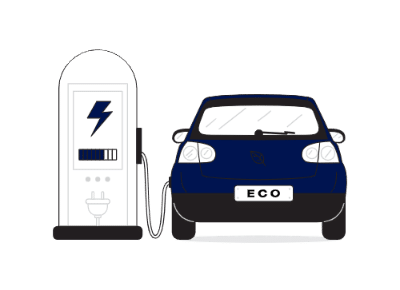How to Increase Towing Capacity: Tips and Tricks
January 14, 2023
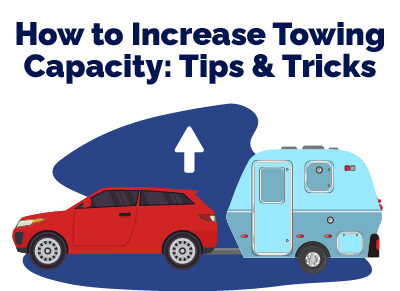

I am a serial entrepreneur and a consumer advocate. When I’m not helping car buyers, I love working on ventures that have a positive impact.
I run a cause marketing agency and serve on the board of Vayu Global Health where we are disrupting the medical industry and preventing the needless deaths of mothers and babies during childbirth.
If you’re looking for ways to increase your vehicle's towing capacity, then you’ve come to the right place! Whether it be for recreational or commercial purposes, increasing your car's tow capacity is an important step in ensuring that both yourself and those around you stay safe while hauling heavy loads.
We'll discuss the basics of understanding how much weight a vehicle can safely pull, as well as provide tips on how best to increase its capabilities when necessary.
We'll also cover some essential safety and maintenance guidelines so that drivers know what they need to do before hitting the road with their increased tow power.
Table of Contents
Towing Capacity Basics
It’s important to know your vehicle’s towing capacity before attempting to tow anything, as exceeding it could cause serious damage and even put you in danger.
What is Towing Capacity?
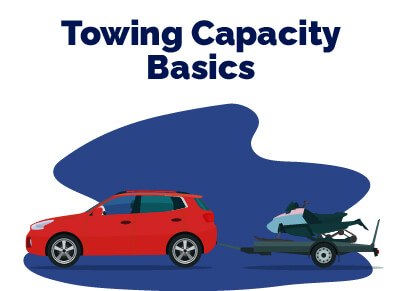 Towing capacity refers to the maximum amount of weight a vehicle can safely pull behind it. This includes trailers, boats, campers, or any other type of load that needs to be towed. The exact amount varies depending on the make and model of your vehicle; some vehicles are capable of hauling more than others due to their size and powertrain configuration.
Towing capacity refers to the maximum amount of weight a vehicle can safely pull behind it. This includes trailers, boats, campers, or any other type of load that needs to be towed. The exact amount varies depending on the make and model of your vehicle; some vehicles are capable of hauling more than others due to their size and powertrain configuration.
Factors that Affect Towing Capacity
There are several factors that affect a vehicle's towing capacity including its engine size, transmission type, suspension system, brakes, axle ratio and wheelbase length. Additionally, accessories such as roof racks or bike carriers may reduce the available space for cargo or add extra weight which could further reduce the total allowable load for your car or truck. It’s important to consider all these factors when determining how much you can safely tow with your specific model of car or truck.
Key Takeaway: The towing capacity of a vehicle is determined by its engine size, transmission type, suspension system, brakes, axle ratio and wheelbase length. It's important to consider all these factors when calculating your car or truck’s towing capacity in order to ensure safe and successful hauling.
Increasing Your Vehicle's Towing Capacity
Towing capacity is an important factor to consider when purchasing a vehicle. It can be the difference between having a safe and successful trip or being stuck on the side of the road with a broken-down car. To ensure your vehicle has enough power to tow what you need, there are several ways to increase its towing capacity.
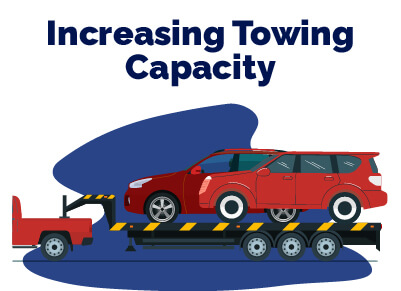 Upgrading Your Suspension System: Upgrading your suspension system is one way to increase your vehicle's towing capacity. This involves replacing worn parts such as shocks, struts, springs, and bushings with higher quality components that can handle more weight. Doing this will help reduce stress on other components in the drivetrain and improve handling while carrying heavier loads.
Upgrading Your Suspension System: Upgrading your suspension system is one way to increase your vehicle's towing capacity. This involves replacing worn parts such as shocks, struts, springs, and bushings with higher quality components that can handle more weight. Doing this will help reduce stress on other components in the drivetrain and improve handling while carrying heavier loads.
Installing a Weight Distribution Hitch: Installing a weight distribution hitch is another way to increase your vehicle's towing capacity by distributing weight evenly across all four wheels of your trailer or caravan for better stability and control when driving at high speeds or over uneven terrain. The hitch also helps reduce strain on the frame of both vehicles by transferring some of the load from one axle onto another axle so they don't become overloaded during long trips.
Key Takeaway: To increase towing capacity, upgrade your suspension system and install a weight distribution hitch. This will improve handling while carrying heavier loads, reduce strain on the frame of both vehicles, and provide better stability and control when driving at high speeds or over uneven terrain.
Choosing the Right Trailer for Your Vehicle
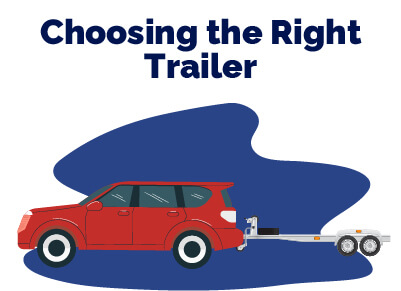 When it comes to choosing the right trailer for your vehicle, there are two main factors you need to consider: the Gross Trailer Weight Rating (GTWR) and selecting the right hitch and ball mounts.
When it comes to choosing the right trailer for your vehicle, there are two main factors you need to consider: the Gross Trailer Weight Rating (GTWR) and selecting the right hitch and ball mounts.
The GTWR is a rating that indicates how much weight your vehicle can safely tow. It’s important to know this number before you purchase any type of trailer so that you don’t overload your vehicle or put yourself in danger while driving. To determine your GTWR, check with your car manufacturer or consult an online resource such as Edmunds or Kelley Blue Book.
Once you have determined what kind of trailer you need based on its weight rating, it is time to select a hitch and ball mount that will fit properly onto your vehicle. Different types of hitches are designed for different weights, so make sure to choose one that matches up with both the size of your trailer and its weight capacity. Additionally, be sure to select a ball mount with enough clearance from the ground when loaded; otherwise it could cause damage if driven over bumps or rough terrain. Finally, inspect all connections regularly before each trip to ensure everything is secure and working correctly.
Safety Tips for Towing Heavy Loads
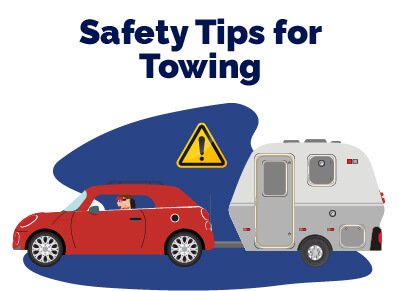 Towing heavy loads can be a daunting task, but with the right safety tips and precautions, it doesn't have to be. Properly securing your load is essential for avoiding any shifting or falling off during transport. Make sure that you use the appropriate straps and tie-downs to secure your load in place. It's also important to check that all of these connections are tight before every trip.
Towing heavy loads can be a daunting task, but with the right safety tips and precautions, it doesn't have to be. Properly securing your load is essential for avoiding any shifting or falling off during transport. Make sure that you use the appropriate straps and tie-downs to secure your load in place. It's also important to check that all of these connections are tight before every trip.
In addition to properly securing your load, make sure you have adequate braking power for stopping with a heavy load attached to your vehicle. If you're hauling something particularly large or heavy, consider adding an auxiliary transmission cooler or upgrading your suspension system so that you can safely stop without putting too much strain on other components of the vehicle.
Finally, inspect all connections before every trip to ensure everything is secure and working properly. This includes checking tire pressure regularly and adjusting as needed, making sure lights are functioning correctly, inspecting brakes for wear and tear, changing oil more frequently when towing heavier loads than usual etc. Doing this will help prevent any potential accidents from occurring while out on the road with a heavy trailer in tow.
Maintenance Tips for Vehicles Used for Towing Heavy Loads
When towing heavy loads, it is important to maintain your vehicle properly in order to ensure safe and reliable transportation. Here are some maintenance tips for vehicles used for towing heavy loads:
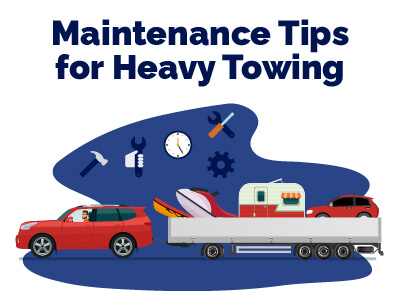 Check Tire Pressure Regularly and Adjust as Needed: Towing a heavy load can put extra strain on your tires, so it’s important to check the tire pressure regularly and adjust as needed. Proper inflation helps reduce wear and tear on the tires while also improving fuel efficiency. Make sure you know what type of tire pressure is recommended for your vehicle when carrying a full load.
Check Tire Pressure Regularly and Adjust as Needed: Towing a heavy load can put extra strain on your tires, so it’s important to check the tire pressure regularly and adjust as needed. Proper inflation helps reduce wear and tear on the tires while also improving fuel efficiency. Make sure you know what type of tire pressure is recommended for your vehicle when carrying a full load.
Change Oil More Frequently When Towing Heavier Loads: The engine oil in your vehicle needs regular changes, but when you’re hauling heavier loads this should be done more frequently than usual. This will help keep the engine running smoothly by removing any dirt or debris that may have built up over time from normal use or from hauling heavier items.
Inspect Brakes, Lights, and Other Components Before Every Trip: It’s essential that all components of your vehicle are functioning properly before each trip with a trailer attached. Check brakes, lights, suspension system components such as shocks and struts, wheel bearings, hitch connections, etc., before every journey—especially if you plan on traveling long distances with a heavy load attached.
Also, make sure that all fluids levels are topped off including brake fluid and transmission fluid, if applicable; these should be checked at least once per month even without any additional weight being towed behind the car.
These maintenance tips will help ensure that your vehicle remains safe while transporting heavier items over longer distances, giving you peace of mind knowing that everything is working correctly before setting out on each journey.
Key Takeaway: Regular maintenance is key to safely and reliably tow heavy loads. Check tire pressure, change oil more frequently, and inspect brakes, lights, suspension system components, wheel bearings, hitch connections and fluids levels before each trip.
Frequently Asked Questions
Is there a way to increase towing capacity?
Yes, there are ways to increase your vehicle's towing capacity. The most common method is by upgrading the suspension components such as springs and shocks. This will help support the extra weight of a trailer or caravan when it is attached to your vehicle. You can install a heavier-duty transmission cooler, larger tires with higher load ratings, and an upgraded exhaust system for increased power output from the engine. Finally, if you have a diesel engine in your car, then fitting an intercooler may also help improve its towing capabilities.
Can I tow more than my towing capacity?
No, you cannot tow more than your towing capacity. Doing so can cause damage to the vehicle and put you in danger of an accident. It is important to check your vehicle's manual for its specific towing capacity before attempting any type of heavy hauling. Itt is best practice to use a trailer hitch rated higher than the maximum weight that will be towed. This ensures that the hitch is able to handle the load safely and securely without putting undue strain on other parts of your car or truck.
Can I increase the GVWR of my truck?
Unfortunately, it is not possible to increase the Gross Vehicle Weight Rating (GVWR) of your truck. GVWR is a manufacturer-specified weight limit for the vehicle and cannot be changed without compromising safety standards. Depending on what you are looking to do with your truck, there may be other ways to achieve your desired outcome such as adding additional accessories or making modifications that don't affect the GVWR rating. It's important to consult an expert before making any changes so you can ensure that all safety regulations are met.
Posted in Car Buying Tips |


